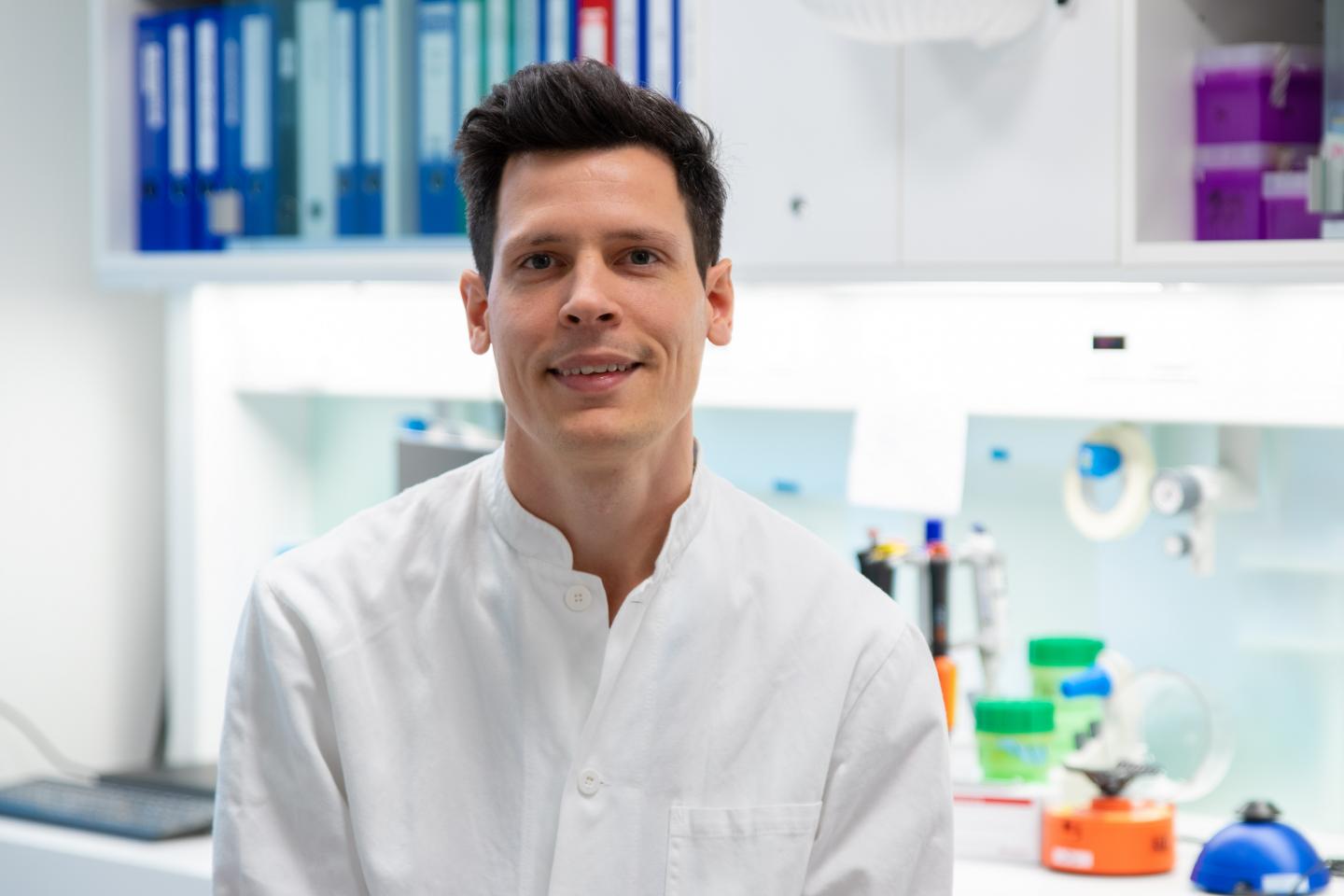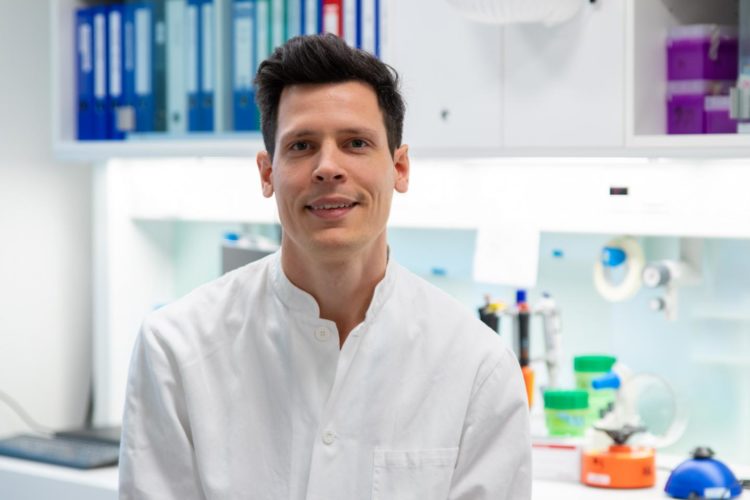A future in which patients with rheumatoid arthritis, psoriatic arthritis and spondyloarthritis receive the correct medication in the first attempt — this is the hope of a newly published research project from Aarhus University, Denmark

Credit: Photo: Simon Byrial Fischel, AU.
When a patient is diagnosed with rheumatoid arthritis, psoriatic arthritis or spondyloarthritis, prescribing the correct type of medicine is a case of trial and error. It is simply not possible to predict which medication will work for the individual patient, and it is therefore a matter of trying the different treatment options: glucocorticoids, low dose chemotherapeutic drugs or newer biological drugs. Until now!
A new research project from Aarhus University and Aarhus University Hospital in Denmark suggest that it is the composition of cells in the joint of the individual patient which determines whether the medicine is effective or not. The researcher behind the study, published in the journal of the American College of Rheumatology (ACR Open), is medical doctor and PhD Tue Wenzel Kragstrup from the Department of Biomedicine at Aarhus University and the Department of Rheumatology at Aarhus University Hospital.
“So far, we’ve examined the effect of nine drugs in three different in vitro models. We can see that the effect of a given drug depends on the cell compositions. This leads us to hope that the immunological cells and inflammatory signalling molecules in the joint of each individual patient will be able to predict the most effective treatment,” says Tue Wenzel Kragstrup.
The study’s in vitro models consist of cell cultures isolated from joint fluids aspirated from the joints of patients with severe arthritis as part of the treatment at Aarhus University Hospital. The researchers then used the diseased cells from the joint fluid to examine the effects of different types of medicine, explains Tue Wenzel Kragstrup’s colleague, Ph.D. student Morten Aagaard Nielsen from the Department og Biomedicine, who is first author of the article.
“As far as we know, this is the first description of a direct association between the composition of the immune system cells and the effect of medication,” Morten Aagaard Nielsen says. Tue Wenzel Kragstrup adds:
“The findings are based on the assumption that the cells in the test tube behaving like they would behave in the patient. So of course, the research result must be validated in humans in a larger number of patients,” says Tue Wenzel Kragstrup, who concurrent with his biomedical research is in rheumatology specialist training.
It was at the hospital while meeting patients racked with pain, that Tue Wenzel Kragstrup got the idea and invented the project.
“Today, the first-choice drug has no effect in around one in three patients. So, doctors often have to try several different types of medicine before they find the right one. This is a process that may take years, because a drug typically takes three to four months to be effective,” explains Tue Wenzel Kragstrup.
“And while we wait, the patients continue to experience swelling and pain – not to mention the permanent damage that can occur in the joints as a result of persistent inflammation,” he says.
Tue Wenzel Kragstrup hopes that the research results in time can be translated into a simple test – such as a blood test – which can determine the correct medicine for the individual patient. According to Tue Wenzel Kragstrup, this type of individualised treatment could be realised within a decade.
Rheumatoid arthritis, psoriatic arthritis and lumbar arthritis – more information:
- Rheumatoid arthritis, psoriatic arthritis and spondyloarthritis affects approx. two per cent of Denmark’s population, often young people, with no known cure.
- The diseases can be very painful and disabling and may therefore have a major impact on families and working life.
- Rheumatoid arthritis, psoriatic arthritis and spondyloarthritis are characterised by an over-reaction in the immune system with inflammation of the affected joints.
###
The research results – more information:
Facts about the type of study: In vitro study.
Partners from Denmark and abroad: Professor Christopher Buckley, University of Birmingham. MD, PhD Student Morten Aagaard Nielsen, Aarhus University.
Possible conflicts of interest: Tue Wenzel Kragstrup has received salary in connection with continuing medical education in collaboration with Pfizer, Bristol-Myers Squibb, Eli Lilly, Novartis and UCB in accordance with the Danish Health and Medicines Authority’s guidelines. He is also medical developer in the biotech start-up company iBIO Tech, which develops drugs for the treatment of patients with chronic rheumatoid arthritis. None of these relations give rise to direct conflicts of interest in relation to the present study.
Media Contact
Tue Wenzel Kragstrup, MD, Ph.D.
[email protected]
45-29-82-17-39
Related Journal Article
http://dx.





